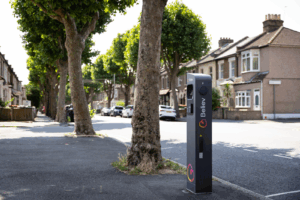Criminalisation of coercive control reaches eight-year anniversary

eight-year anniversary of landmark legislation which established coercive and controlling behaviour as a criminal offence in the Serious Crime Act 2015 of England and Wales. As Women’s Aid heads towards its 50th year in 2024, this remains one of the accomplishments that we are most proud of.
Farah Nazeer, chief executive at Women’s Aid, comments:
“Criminalising coercive and controlling behaviour, which Women’s Aid campaigned for alongside other organisations, was a landmark step forward in improving understanding of domestic abuse. Coercive control is at the heart of domestic abuse , leaving the person dependent on their abuser, lacking in confidence and isolated from their support network. Despite the prevalence of coercive control and how damaging it is, eight years on from the legislation that made it a criminal offence, only a small minority of survivors who experience it see justice being done.
“We must do more to hold perpetrators accountable. It is positive to see that police recorded coercive control offences are rising year on year – reaching over 43,000 in the year ending March 2023. Yet only a fraction of these offences are resulting in convictions. Everyone in the justice system needs to go far further to provide survivors with a consistent response to their experiences of abuse, ensuring that the crime is properly investigated, evidenced and strong cases are built to present to the court. These professionals must undergo specialist domestic abuse training to truly understand the corrosive nature of coercive control.
“The government is also proposing, through the new Criminal & Justice Bill, to require those convicted of coercive control and serving a prison sentence of over a year, to be automatically subject to multi-agency protection measures – in the same way that violent, sexual and terrorist offenders currently are. This is an important step forward but questions remain around how many survivors it will protect, given the very low numbers of offenders serving prison sentences for coercive control. We need to see far better multi-agency working, that includes the expertise of specialist domestic abuse services, in every case of coercive control.
“We know from our work with survivors of abuse, that a key reason for not reporting domestic abuse incidents is the fear of not being believed. We must believe survivors, placing their needs at the heart of everything we do.”
What is coercive control?
It is important to remember that domestic abuse isn’t always physical. In statutory guidance, coercive control is defined as “a purposeful pattern of behaviour which takes place over time in order for one individual to exert power, control or coercion over another” (Home Office, 2015). This form of abuse is designed to make a person dependent on their abuser, as it isolates them from support, regulates their everyday behaviour and deprives them of independence.
Coercive control leaves the victim in a constant state of fear and experts have likened it to being taken hostage. Because the abuser works to limit the victim’s independence and ability to make decisions and act, the victim is left feeling like they are trapped in a world created by their abuser – filled with confusion, contradiction and of course, fear. Coercive control can have a damaging and long-term effect on a person’s mental and physical wellbeing.
What are some signs of coercive control?
There are many signs and examples of coercive control, but ones we see occur time and time again include:
The abuser isolating you from friends and family
Depriving you of basic needs, like food
Monitoring your time and movements, often with the use of spyware or online communication tools
Taking control over your everyday life, like where you go, who you see, what you wear and even when you sleep
Repeatedly putting you down and eroding your confidence, humiliating, degrading and dehumanising you
Controlling your finances
Intimidating you or threatening you
Depriving your access to support services (like medicine services)
Gaslighting you and convincing you that you are wrong and they are right
Abusers will often exploit existing inequalities in society, so they may for example threaten women with insecure immigration status with deportation. This can create more barriers for women who face additional inequalities to escape and seek support.
Natalie Curtis, Survivor Ambassador for Women’s Aid, said:
“As a survivor of coercive control, having fled and reported the abuse to the police in 2018, I know first-hand the devastating impact it can have on a person’s life. I felt fear, shame and embarrassment, while also being unable to process normal, day-to-day, life. Coercive control lies at the heart of domestic abuse, and while the law recognising it as a crime was introduced in 2015, as part of the Serious Crime Act, eight years on it is still sadly very misunderstood. Some welcome steps have been made to change this, but nowhere near enough.
“We have called on our Government for years to ensure that domestic abuse services are properly funded, that our justice system better understands the complexity of coercive control with training rolled out through every Court, that every police force carries out mandatory training and that as a society, we all work together to end domestic abuse once and for all, holding perpetrators to account.
“I continue to speak out, to raise awareness and to educate others on the patterns and behaviours that constitute coercive control, giving survivors the confidence and hope that they can live a life free from domestic abuse. If this is happening to you, remember, you are not alone.
“Domestic abuse is a National Emergency; and actions speak lounder than words. We must treat this as a priority, now. “
Natalie was successful in securing an arrest, charge and conviction for coercive control after a six year relationship with a controlling and coercive partner. She credits the conviction and restraining order with allowing her time to heal and to rebuild her future.
If you, or someone you know, is experiencing coercive control in a relationship, remember – you are not alone, Women’s Aid is here to help you. If you’re not sure if your relationship is healthy or you’re worried about a friend or family member, we’re here for help and support. You can talk to fully trained female support workers by email or Live Chat, connect with others with similar experiences on Survivors’ Forum, or find resources in the Survivors’ Handbook.



